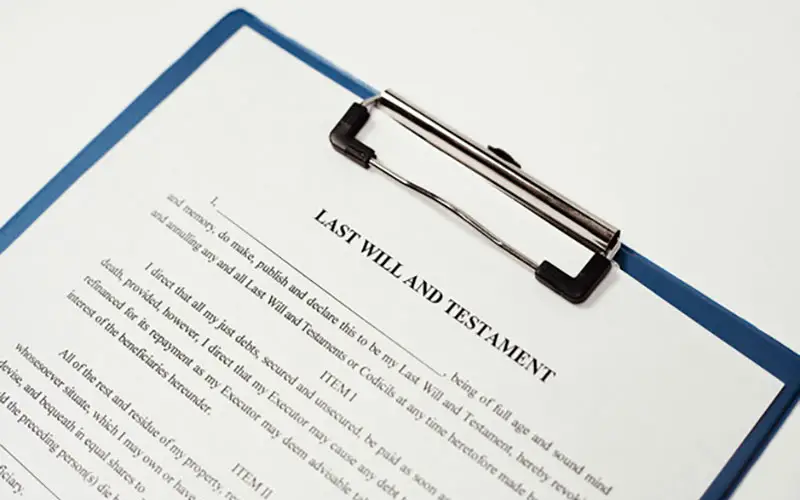When researching a family’s genealogy, it can be difficult to find the information you are looking for.
It can be frustrating, especially when your research reaches farther and farther back in time. This is where genealogy wills come in handy.
Using wills as part of your genealogy research is an invaluable asset. You can discover a lot about a family in their wills, more than you probably think.
But what do you need to know about these documents before you begin? Read on to discover everything you need to know about genealogy wills.
Using Wills For Genealogy Research

There is a lot of important information contained in a person’s will.
Of course, sometimes a person does not write much in his or her will, but other times they do. In either case, you can learn a lot about people from their wills.
A lot of people researching genealogies forget about wills, though they are legal documents that contain a plethora of information.
The farther back in time you go the harder it will be to conduct research with legal wills.
What will you find in a will that is useful for genealogy research? You will find, among other items, some of the following:
- Death dates (sometimes exact, sometimes approximate)
- Relationships between certain family and non-family members
- The names of spouses and children (and sometimes beyond)
- Information about how much money they had
- The personality of the deceased person
- Important locations
Wills and Probate Documents

As you conduct your research, you will come across a few terms you need to be familiar with.
There are wills and there are probate documents. What is the difference?
- Wills are the written documents created by the deceased person while they were still living.
- Probate documents contain the will and other items about the death of the deceased. The process by which the will is put into practice is part of the probate.
As mentioned before, these are legal documents. They will be located, usually, in the courthouse in the area where the person died.
However, the name of the court in which they are located may not always be called the same thing, depending on where you are.
How Do Wills Help With Genealogy?

Researching genealogy can bring you into murky waters.
In the past, a lot of people did not have records of their births (outside of church registries), and they did not have much of a record of their lives.
However, a lot of people had wills they would leave behind. These wills fill in the gaps where other methods come up short.
Taking a closer look at the items you will find in a person’s will shows how valuable they are.
Death Dates
Wills are dated documents that can provide you with an approximate death date of the individual.
Sometimes you will find an exact date in the probate, but, more likely, you will have to deduce the date yourself.
This is not hard, however. On the will, there will be the date on which the will was created, and in the probate, there will be the date on which the process was filed.
These dates will not be the same, however, the second date has to be after the person has died.
Using this information, you can pinpoint the approximate date on which they died.
It is not exact, but it will give you a much clearer timeline than if you did not have these documents.
Other dates can be deduced from wills, too. For example, a will may mention the ages of certain individuals.
Using the date of the will to calculate, you can find the general timeframe in which some individuals were born.
Wills Provide the Relationships Between Certain Individuals
The person writing the will, known as a testator, can provide a lot of information about the relationships between people within and from without a family.
You need to read between the lines sometimes. Ask yourself some of the following questions while analyzing the will:
- What exactly is the testator leaving to certain individuals? His wife? Her husband? Their children? Nephews? This can shed light on what the personal relationship is between these people.
- What language is being used by the testator? Oftentimes, the testator will write in a specific way. For example, using “affectionate” language for one family member and “cold” language for another.
- Who is left out of the will? Other research may be necessary here to discover who else would be missing, but the people not included in a will are often just as important as the ones included.
The Names of Individuals May Be Included
It can be difficult to find the names of people while you are researching. Sometimes names are lost to time.
Wills are not a foolproof way of finding people’s names. It depends on the will.
When you are researching genealogy, you will come across these stumbling blocks, but it is okay.
In some wills, the names will be mentioned directly. They may be mentioned to varying degrees, however.
Sometimes they may only mention the first name, sometimes both first and last name.
Other times, only a nickname or a name of affection is given. Even in these instances, however, you are gaining insight into who these people were.
How Comfortably People Lived Can Be Discovered in Wills

Wills are documents that divide a person’s property among their family, friends, and so on.
They will contain insight into how comfortable their lives were. In other words, it will give a picture of what their income probably was.
In your research, between wills and probate documents, you may find their income listed.
This is not always the case. Most of the time, you will have to infer from the information in the will.
Considering the time in which a will was written, you can look at the items being left and discover how well-off they were.
If someone is leaving a lot of monetary assets and expensive furniture items and land holdings then it is safe to assume they were very comfortable.
However, you may come across wills where not much is being left. This may not necessarily be an indication of a lower-class family, but it can point in that direction.
This information will work in harmony with any other genealogy research being done to fill in the blanks of the picture.
A Will Can Show Personality

A will can include some colorful descriptions. If a person did not like someone or perhaps liked someone more than all the rest, it can come through in how the will is written.
For example, a testator may write praise (or scorn) of an individual before saying what they are leaving them if anything. Other times, you will find elaborate explanations of why one person is receiving one item over another.
You can figure out a lot about the personality of the deceased:
- Who they liked
- Who they disliked
- How they probably expressed themselves in real life (nice, bitter, etc.)
Important Locations May Be Mentioned
Wills may also mention specific locations. These locations may include properties, buildings, towns, cities, friends’ houses, and more.
Remember, some wills can get very personal, and this results in extra details about a person’s life.
These locations can be used to create a fuller picture. It will show where they lived, or where they came from. It can help map out the journey of a family.
Summary
Genealogy wills are valuable tools. They help you discover many elements about a family’s history. They provide insight that other documents cannot.
With a little intuition, you can piece together the puzzle pieces contained in these documents.
Wills are legal documents and may contain legalese, but they can also contain humanity, a touch of the emotional, and a touch of the personality of the person as they once were, even if it was generations and generations ago.
Read next: 24 Genealogy Quotes Family History Buffs Will Love
